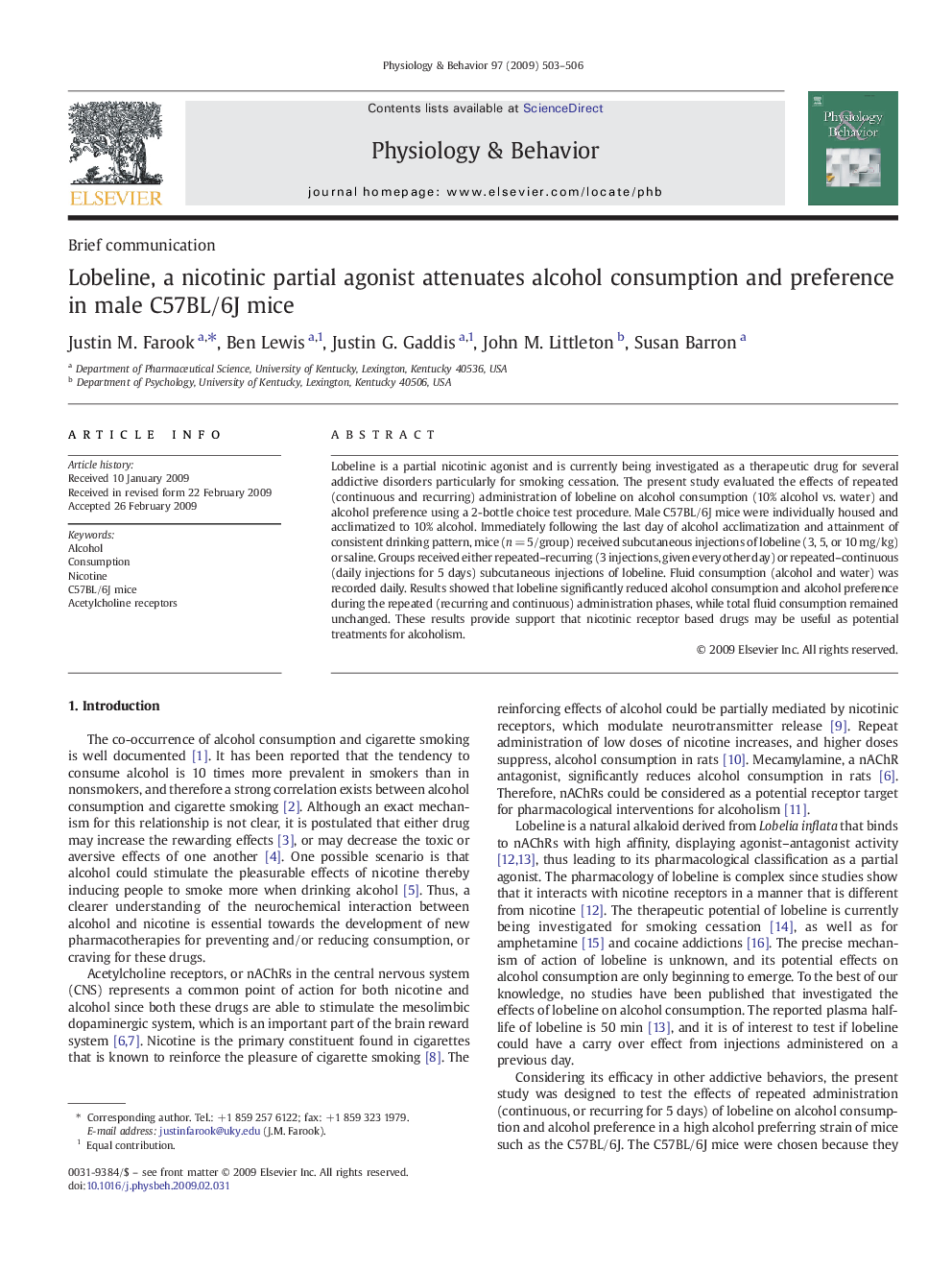| کد مقاله | کد نشریه | سال انتشار | مقاله انگلیسی | نسخه تمام متن |
|---|---|---|---|---|
| 2845760 | 1571210 | 2009 | 4 صفحه PDF | دانلود رایگان |

Lobeline is a partial nicotinic agonist and is currently being investigated as a therapeutic drug for several addictive disorders particularly for smoking cessation. The present study evaluated the effects of repeated (continuous and recurring) administration of lobeline on alcohol consumption (10% alcohol vs. water) and alcohol preference using a 2-bottle choice test procedure. Male C57BL/6J mice were individually housed and acclimatized to 10% alcohol. Immediately following the last day of alcohol acclimatization and attainment of consistent drinking pattern, mice (n = 5/group) received subcutaneous injections of lobeline (3, 5, or 10 mg/kg) or saline. Groups received either repeated–recurring (3 injections, given every other day) or repeated–continuous (daily injections for 5 days) subcutaneous injections of lobeline. Fluid consumption (alcohol and water) was recorded daily. Results showed that lobeline significantly reduced alcohol consumption and alcohol preference during the repeated (recurring and continuous) administration phases, while total fluid consumption remained unchanged. These results provide support that nicotinic receptor based drugs may be useful as potential treatments for alcoholism.
Journal: Physiology & Behavior - Volume 97, Issues 3–4, 22 June 2009, Pages 503–506